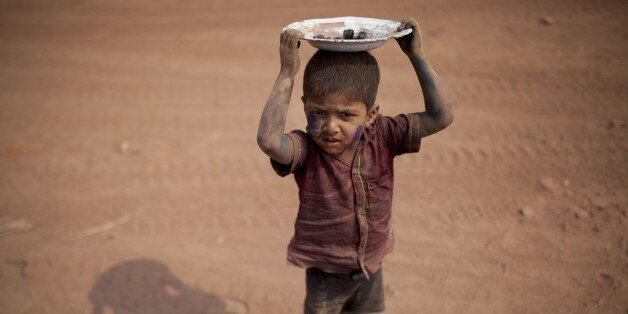We have seen how thousands of Nepalese girls, forced onto the streets after the Nepal earthquake, have been trafficked into India and even sold into the United Kingdom. Gross abuses, including rape, have been reported in Iraq. We have heard, at first hand, how Syrian refugee girls as young as eight and nine have been forced into working for exploitative employers when they should be at school. And the plight of the girls kidnapped by Boko Haram from their school two years ago in Nigeria’s Borno province continues to haunt us.
The last year has seen such blatant violations of children’s rights that instead of being shocked the international community has sadly begun to accept these abuses as normal.
We have seen how thousands of Nepalese girls, forced onto the streets after the Nepal earthquake, have been trafficked into India and even possibly sold into the United Kingdom. Gross abuses, including rape, have been reported in Iraq. We have heard, first hand, how Syrian refugee girls as young as eight and nine have been forced into working for exploitative employers when they should be at school. And the plight of the girls kidnapped by Boko Haram from their school two years ago in Nigeria’s Borno province continues to haunt us.
This month the Global Citizenship Commission — which reports to the U.N. Secretary-General — will call for a renewed commitment to ending slavery among young children. Modern slavery has permeated every aspect of our lives. Adults and children, many of them young girls, are being trafficked within and across countries to work in farms, factories or workshops. A recent report shows that there is a shocking rise in the number of children being used in suicide bombs.

